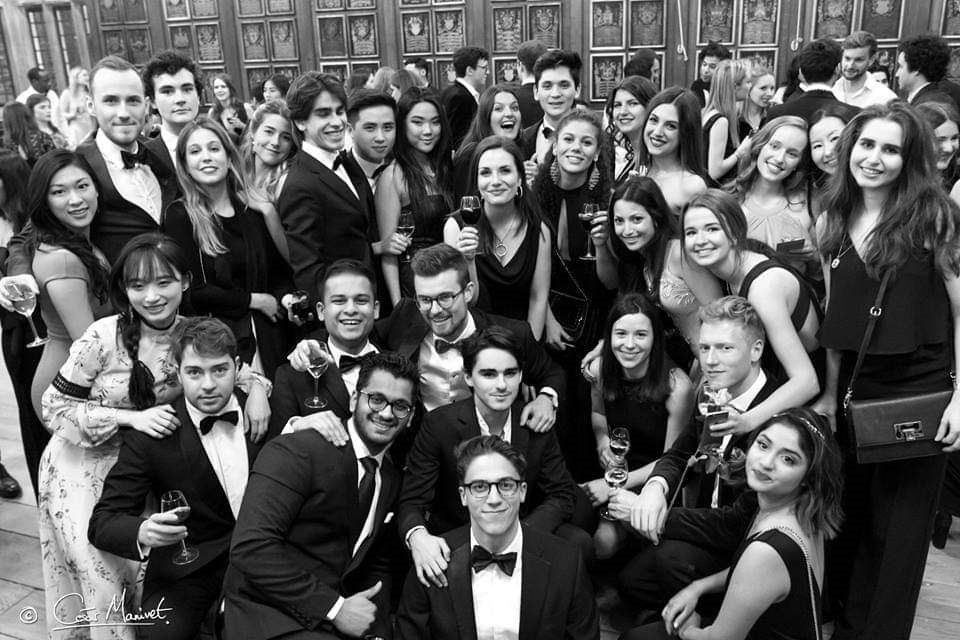Applying to LSE is a bit like making a meal. You could make instant noodles. It just will not make it past most people for dinner (yes, my programmer friends, there’s life beyond noodles and pizza).
If you want to excite the palate, you will have to put in the work. I outline the approach I used, which served me eventually, and can potentially be applied to other situations. I am not suggesting that it’s application alchemy, but it has delivered on many an important application. Plan it well, figure out a way to pay for it, be enthralling, and be resilient.
Plan the application
I often try to learn from failure. I believe this is key to many spheres of life. Fail fast, fail faster. My first application was something of a rushed affair, which I submitted days before the application deadline. It was rejected with that pseudo personal jargon anyone who has courted a role guarded by an applicant tracking system knows all too well.
My advice is to approach it a bit more like my second application: equipped with everything. Drogon and the Lannister army, Morpheus, Dumbledore’s Army, the elves of Rivendell and whoever else is ready to defend your honour.
At a minimum, ensure you have two academic references: I went back to my Management of Information Systems lecturer, and my ethics lecturer who had a fairly good idea of my postpositivist tendencies. I reached out to my former CEO, for a professional reference because I was not taking chances with this application. Think about leveraging your network with the specific purpose of proving your academic merit and social skills (professionally, or through work in the community). Have someone look over it, who is prepared to give constructive feedback, but knows enough about you, to give helpful feedback.
Ways to pay
One overlooked part of the process of applying to LSE is funding. If you can afford to pay for school, that’s great. For others, it might require blending scholarships, student loans, and personal borrowing. The earlier you can plan this, the better. If you are an international student, the full amount may be required before you start school to get a VISA: no pressure.
For scholarships, the school has a wealth of resources here. It’s ideal to have back-up plans. I ended up going with plan D to pay for school so that gives you an idea of the level of planning required.
While it’s not a complete showstopper for your application, it is something that may impact you after getting a place, so keep an eye out for it. During the application, you may need to respond to questions around funding to assess your suitability for financing options such as the graduate support scheme, and scholarships managed by the school.
Be enthralling: play to your strengths
When composing your application, treat it like a job application. Illustrate the depth of your experiences. Almost everyone has an interesting story that should be heard (the exception is politicians who we all end up knowing too much about). I wrote about my experiences learning and working with computers for a combined 20 years now. I wrote about my time in student government, and I wrote about my hopes for my career trajectory.
 Think about why it is that you wish to attend LSE.
Think about why it is that you wish to attend LSE.
Then focus on the specific programme you wish to do. Clear ideas, and objectives and a compelling narrative are more important than pristine grades. Not that straight A’s hurt but try to go beyond your results. LSE promotes diversity of thought, and often grades are an insufficient character assessment. Combine your academic achievements with your experiences to truly strengthen your application. Display an awareness of topical issues, throw in a zeitgeist or two. Become the LSE student in prose: show a desire to understand the causes of things (a free hint).
Apply early
 Time is a fascinating currency: a good measure of value (legal, medical, and consulting fees are self-evident) and an expensive means of exchange (day care is swapping your time for someone else’s). It also happens to be a terrible master. Time is probably the first tyrant, and the tyranny of deadlines is well known to students, creatives, project managers and all other subjects of Grandmaster Time. Start gathering the things you need for your application as early as possible.
Time is a fascinating currency: a good measure of value (legal, medical, and consulting fees are self-evident) and an expensive means of exchange (day care is swapping your time for someone else’s). It also happens to be a terrible master. Time is probably the first tyrant, and the tyranny of deadlines is well known to students, creatives, project managers and all other subjects of Grandmaster Time. Start gathering the things you need for your application as early as possible.
Start conversations with referees, obtain partial transcripts, English test results (a whole conversation for another day), certified copies of identification and previous academic achievements can all be obtained quite early on in. The earlier you apply, the quicker you will get your response. Depth and breadth of experience, timeliness and quality are all good characteristics of a winning LSE application.
Accept failure but reject defeat
No is such a terrible word. It receives bad publicity because of its regular abuse by negative forms of deviance. It has also motivated some of the best athletes in the world and is behind some of the greatest inventions and enterprises our modern world has seen. I could talk about Strive Masiyiwa, Jack Ma, Serena Williams, Naomi Osaka or about James Dyson but these are stories of triumph, which have already been told. They converted a no, to become a resounding success story of yes.
The point is that failing is quite common (maybe for Thomas Edison, more than others) but it should not deter you from attempting again. I’ve applied to LSE unsuccessfully, so I know what an email from Simon Beattie with the word regret can trigger emotionally. Some are blessed enough to gain entry upon the first attempt, but every individual runs their own race, and sometimes your victory is not yet ripe.
I got admitted on my second application, but if I had given up, I would not be writing these words of encouragement to you. I received Thinking quite early in my life, and I encourage to read it if you get the chance. It will also explain my final piece of advice: accept failure, but never yield to defeat.







